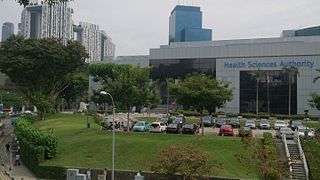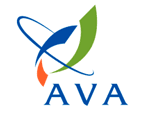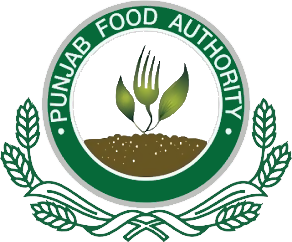
The United States Food and Drug Administration is a federal agency of the Department of Health and Human Services. The FDA is responsible for protecting and promoting public health through the control and supervision of food safety, tobacco products, caffeine products, dietary supplements, prescription and over-the-counter pharmaceutical drugs (medications), vaccines, biopharmaceuticals, blood transfusions, medical devices, electromagnetic radiation emitting devices (ERED), cosmetics, animal foods & feed and veterinary products.
Food quality is a concept often based on the organoleptic characteristics and nutritional value of food. Producers reducing potential pathogens and other hazards through food safety practices is another important factor in gauging standards. A food's origin, and even its branding, can play a role in how consumers perceive the quality of products.
The Canadian Food Inspection Agency is a regulatory agency that is dedicated to the safeguarding of food, plants, and animals (FPA) in Canada, thus enhancing the health and well-being of Canada's people, environment and economy. The agency is responsible to the Minister of Health.

The Health Sciences Authority (HSA) is a statutory board under the Ministry of Health of the Government of Singapore. It is a multi-disciplinary agency responsible for applying medical, pharmaceutical, and scientific expertise to protect and advance public health and safety.

Food safety is used as a scientific method/discipline describing handling, preparation, and storage of food in ways that prevent foodborne illness. The occurrence of two or more cases of a similar illness resulting from the ingestion of a common food is known as a food-borne disease outbreak. This includes a number of routines that should be followed to avoid potential health hazards. In this way, food safety often overlaps with food defense to prevent harm to consumers. The tracks within this line of thought are safety between industry and the market and then between the market and the consumer. In considering industry-to-market practices, food safety considerations include the origins of food including the practices relating to food labeling, food hygiene, food additives and pesticide residues, as well as policies on biotechnology and food and guidelines for the management of governmental import and export inspection and certification systems for foods. In considering market-to-consumer practices, the usual thought is that food ought to be safe in the market and the concern is safe delivery and preparation of the food for the consumer. Food safety, nutrition and food security are closely related. Unhealthy food creates a cycle of disease and malnutrition that affects infants and adults as well.
The Ministry of Food Processing Industries (MOFPI) is a ministry of the Government of India responsible for the formulation and administration of the rules, regulations, and laws related to food processing in India.

The Agri-Food and Veterinary Authority of Singapore (AVA) was a statutory board under the Ministry of National Development that regulated food safety, safeguarded animal and plant health, and facilitated the agri-food and fisheries trade sectors. AVA was disbanded on 1 April 2019, with duties being transferred to other statutory boards, Singapore Food Agency, National Environment Agency, Health Sciences Authority, and National Parks Board.

The Bureau of Indian Standards (BIS) is the National Standards Body of India under Department of Consumer affairs, Ministry of Consumer Affairs, Food & Public Distribution, Government of India. It is established by the Bureau of Indian Standards Act, 2016 which came into effect on 12 October 2017. The Minister in charge of the Ministry or Department having administrative control of the BIS is the ex-officio President of the BIS. BIS has 500 plus scientific officers working as Certification Officers, Member secretaries of technical committees and lab OIC's.

The National Institute of Nutrition (NIN) is an Indian public health, nutrition and translational research centre located in Hyderabad, India. The institute is one of the oldest research centres in India, and the largest centre, under the Indian Council of Medical Research, located in the vicinity of Osmania University. The institute has associated clinical and paediatric nutrition research wards at various hospitals such as the Niloufer Hospital for Women and Children, the Government Maternity Hospital, the Gandhi Medical College and the Osmania General Hospital in Hyderabad.

The Food Safety Modernization Act (FSMA) was signed into law by President Barack Obama on January 4, 2011. The FSMA has given the Food and Drug Administration (FDA) new authority to regulate the way foods are grown, harvested and processed. The law grants the FDA a number of new powers, including mandatory recall authority, which the agency has sought for many years. The FSMA requires the FDA to undertake more than a dozen rulemakings and issue at least 10 guidance documents, as well as a host of reports, plans, strategies, standards, notices, and other tasks.

National Accreditation Board for Testing and Calibration Laboratories (NABL) provides accreditation to Conformity Assessment Bodies (Laboratories) in India. NABL Schemes include Accreditation (Recognition) of Technical competence of testing, calibration, medical testing laboratories, Proficiency testing providers (PTP) & Reference Material Producers (RMP) for a specific scope following ISO/IEC 17025, ISO 15189, ISO/IEC 17043 & ISO 17034:2016 Standards. It has Mutual Recognition Arrangement (MRA) with Asia Pacific Accreditation Cooperation (APAC), International Laboratory Accreditation Cooperation (ILAC).

India Organic is a certification mark for organically farmed food products manufactured in India. The certification mark certifies that an organic food product confirms to the National Standards for Organic Products established in 2000.

National Institute of Food Technology, Entrepreneurship and Management, Thanjavur (NIFTEM-T), formerly Indian Institute of Food Processing Technology (IIFPT), is an academic institution with Institute of National Importance (INI) status, functioning under the Ministry of Food Processing Industries (MoFPI), Government of India located at Thanjavur, Tamil Nadu. The institute offers academic and research programmes in the field of food processing technology. The institute has National Accreditation Board for Testing and Calibration Laboratories (NABL) accredited food quality testing laboratory which is also notified Food Safety and Standards Authority of India (FSSAI) Referral Food Laboratory. Food product development laboratory, food microbiology laboratory, post harvest pest management laboratory, food processing incubation center, Central Instrumentation Laboratory and food engineering laboratories are in its main campus at Thanjavur. NIFTEM-T is operating liaison offices at Guwahati, Assam and Bathinda, Punjab. These liaison offices have facilities to give skill development trainings, incubation and consultancy services to the farmers, entrepreneurs and students in the field of value addition of agricultural produce and food processing technologies.
Toned milk is a method, developed in India, of treating buffalo milk by adding skim milk, powdered skim milk and water to buffalo milk. This process decreases the fat content, increases the quantity of available milk, and 'tones up' the non-fat solids level to the original amount. The cost of milk is reduced, making it more widely available and not a luxury purchase.

The Central Institute of Fisheries Technology (CIFT) is an autonomous organization established by the government of India, engaged in research related to fishing and fish processing in the country. The institute has its headquarters in Matsyapuri, Willingdon Island, Kochi and is a subsidiary of Indian Council of Agricultural Research (ICAR), New Delhi, under the Ministry of Agriculture, India.
Patanjali Ayurved is an Indian multinational conglomerate holding company, based in Haridwar. It was founded by Ramdev and Balkrishna in 2006. Its office is in Delhi, with manufacturing units and headquarters in the industrial area of Haridwar. The company manufactures cosmetics, ayurvedic medicine, personal care and food products. The CEO of the company, with a 94-percent share hold, is Balkrishna. Ramdev represents the company and makes strategic decisions.

The Punjab Food Authority (PFA) (Urdu: مقتدرہ خوراک پنجاب) is an agency of the provincial Government of Punjab in Pakistan. It regulates food safety and hygiene in the Province. It was formed under the Punjab Food Authority Act 2011. The PFA is the first agency of its kind in Pakistan. Enforcement of food hygiene and quality standards as described in the Punjab Food Authority Act 2011 and the Pure Food Rules 2011.
The Quality Council of India (QCI) was set up as a public private partnership model on the model existing in Netherlands at the time, where although the NAB was not owned by the government, yet it was supported by it and was exceedingly used as a third party agency to improve quality in departments and industry. QCI thus, came to be organized as an independent autonomous body that worked towards assuring quality standards across all spheres of economic and social activities. Key industry associations, i.e. Associated Chambers of Commerce and Industry of India (ASSOCHAM), Confederation of Indian Industry(CII) and Federation of Indian Chambers of Commerce and Industry (FICCI) became the promoters of the organizers and QCI got established under the Societies Registration Act in 1996 to provide accreditation services in various sectors for product, services and persons.
Multiple symbols have been developed to represent lacto-vegetarianism and veganism. Several are used on food packaging, including voluntary labels such as The Vegan Society trademark or the V-Label as well as the vegetarian and non-vegetarian marks mandated by the Indian government. Symbols may also be used by members of the vegetarian and vegan communities to represent their identities, and in the course of animal rights activism.
In May 2015, the Food and Drug Administration representatives from Barabanki, a district of Uttar Pradesh, India stated that samples of the product Maggi 2-Minute Noodles had unusually excessive levels of lead. This finding led to multiple market withdrawals and investigations in India and beyond.













